 Midwestern Gothic staffer Giuliana Eggleston talked with author Toni Nealie about her book of essays The Miles Between Me, approaching sensitive topics, the influence of identities, and more.
Midwestern Gothic staffer Giuliana Eggleston talked with author Toni Nealie about her book of essays The Miles Between Me, approaching sensitive topics, the influence of identities, and more.
**
Giuliana Eggleston: What’s your connection to the Midwest?
Toni Nealie: It’s home these days. I walk my dog on the wide sidewalks of Oak Park, Ilinnois, those hated by Hemingway (my kids have gone to the same school that he did.) My family, work and cultural life are centered here. I teach at Columbia College Chicago, am the lit editor at Newcity, write in Oak Park, fight with rabbits and squirrels here.
GE: Much of your new book of essays, The Miles Between Me, deals with the experiences you’ve had moving from New Zealand to Chicago. Has this move affected your use of place and setting in your writing?
TN: Place is central to my writing. I grew up with the dramatic landscape of Aotearoa’s mountains, ocean and native forests. It is ever-present in these essays, but I chart my growing appreciation for the Midwestern landscape.
GE: Has your writing style changed at all with the move?
TN: Very much so. Previously I wrote journalism, now I am writing more lyrical, digressive, thoughtful prose. Uncoupling myself from straight narrative was freeing.
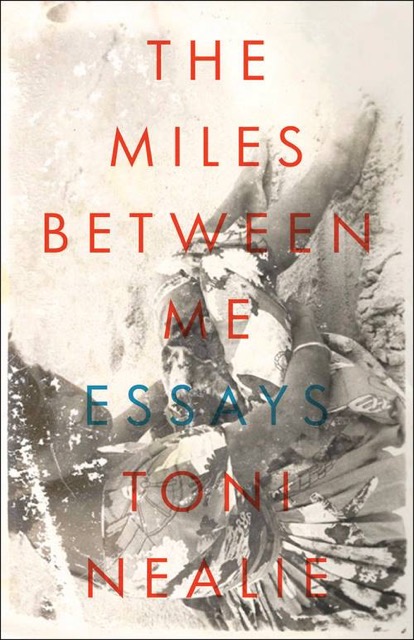
GE: In your essay “On The Rights and Privileges of Being an Alien,” you address difficult subjects such as racial profiling when traveling between countries. How do you approach writing about these sensitive topics? Are there areas you try to avoid, or specifically touch on?
TN: It is hard to balance my personal encounters with racism and immigration against the enormity of what other migrants go through. I’m only telling my story, and as painful as it was for me, I know my experience pales in comparison to that of others. I found it hard to weigh the discourse about borders and immigration against people’s real fears of terrorism from outside threats. My main concern was toward the people closest to me, how they would perceive what I was trying to do when talking about family matters.
GE: Your essays can be deeply personal, letting the reader in on intimate areas of your life such as your family, fears, and memories. Are there any challenges you face when making yourself this vulnerable? What do you hope to achieve by opening yourself up to the public in this way?
TN: My main achievement is writing to make sense of my own life and some of the forces in it, but I hope that aspects of my individual perspectives will ring true on a universal human level. I have met several women who say they were brought to tears when reading the first essay, because it mirrored the experience of losing their identity through isolation or loss of job and had made them feel very alone. I’ve had strangers of various ethnicities who relate to the dualities and questions and general weirdness offered in “Meditations on Brownness” – how your perception of yourself can be so different to the box bureaucracy or society tries to squeeze you into.
GE: Your writing is often influenced by your identities–your status as an “alien” in the United States, the color of your skin, being a woman. Have these identities always been strong factors in your life, or have certain experiences brought them into sharper focus? How have these identities factored into the development of your writing style?
TN: They have been brought into sharp focus! I’ve been conscious of race and gender issues for a long time. Having children leaves you in no doubt that you are a woman. But until I moved to the U.S. my life wasn’t as compartmentalized, and being a woman and a brown person wasn’t as fraught as I have encountered here. Politicians don’t let a day go by without attempting to curtail women’s agency. We see daily the suffering of people outside the dominant circle of power and influence. Not to say that gender and ethnicity aren’t issues in my homeland, but the U.S is such a vast country, with a history of religious values, geopolitics and race dynamics that create a polarized present.
GE: While your writing takes its form primarily in essays, it has a very lyrical and poetic quality nonetheless. What is your writing process like, and what inspires your more poetic style? Is it the natural way you write or do you spend time crafting your phrases?
TN: I draw on both movement and stillness when I write. I like to walk and think and read poetry or lyrical work before I sit down. I am naturally a very social person, used to busy newsrooms and noisy offices. To write, I have the music off to be in a more meditative state. I like the play and rhythm of words on the page. I’m a slow writer. These essays took a lot of time!
GE: The topics of your essays are very autobiographical, focusing on your personal experiences and illuminating aspects of life through first-hand accounts. When do you first know you are going to write about something you have experienced?
TN: Initially, I thought I was going to write a book of general nonfiction, but I was pressed to make sense of my own life and the essay is able to combine biography, factual research, poetry, imagination, digression, playfulness, and anecdote until it makes its own alchemy and is none of the above. The essay draws on my own life, but it is carefully curated and imagined.
GE: What’s next for you?
TN: A nonfiction book-length project and a fiction project that I am researching, but too soon to say what will work yet. I could do with an agent!
**
Toni Nealie is the author of The Miles Between Me, an essay collection about homeland, dispersal, heritage and family. Her essays have appeared in Guernica, The Prague Revue, The Offing, The Rumpus, Hobart and Entropy. Her essay “the Displeasure of the Table” was nominated for a Pushcart Prize. Originally from New Zealand, she worked as a journalist and in public relations in NZ and the UK. She holds an MFA from Columbia College Chicago. She teaches and is Literary Editor of Newcity.
August 11th, 2016 |
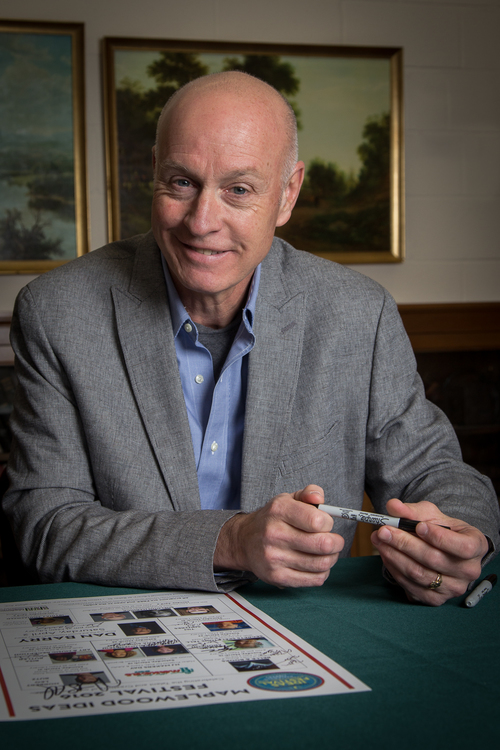 Midwestern Gothic staffer Sydney Cohen talked with author Dan Barry about his book The Boys in the Bunkhouse, giving voice to the voiceless, corroborating stories from the mentally disabled, and more.
Midwestern Gothic staffer Sydney Cohen talked with author Dan Barry about his book The Boys in the Bunkhouse, giving voice to the voiceless, corroborating stories from the mentally disabled, and more.
**
Sydney Cohen: What’s your connection to the Midwest?
Dan Barry: I have no familial or work-related connection to the Midwest. I guess the connection would be through the stories I’ve found there through the years, especially as a roving columnist for The New York Times. I can’t count how many columns I’ve written from there: a reunion of retired burlesque performers in Baraboo, Wis.; the attack of crows upon the fair city of Terre Haute, Ind.; the tornado in Joplin, Mo.; the gravesite of Sitting Bull in Mobridge, S.D.… Some of my biggest projects have been in the Midwest: Donna’s Diner in Elyria, Oh.; a boxing story rooted in Dearborn, Mich., and Youngstown, Oh. And, I guess, The Boys in the Bunkhouse, in Iowa. I guess I just like the Midwest.
SC: Your new book, The Boys in the Bunkhouse, is a harrowing tale of the marginalization and abuse of the mentally disabled men from Texas. Your past work, including your New York Times column “This Land,” also deals with the theme of uncovering exploitation in hidden corners across the United States. What inspires you to write about “the other” – the figures drifting on the margins of society?
DB: As a storyteller, I am craven: If it’s a good story – funny or sad, about the rich or the poor – I want to tell it. But at the same time I am drawn to those stories in which the voiceless can be given voice. Their stories perhaps have not been heard before, or have been drowned out by the everyday cacophony. My father was a Depression kid who had it tough in New York City; my mother was born in Ireland and orphaned by the age of 15. I think they instilled in me the sense that everyone matters; everyone has something to say. And that maybe, through the telling, some justice can be found – or, at least, some deeper understanding.
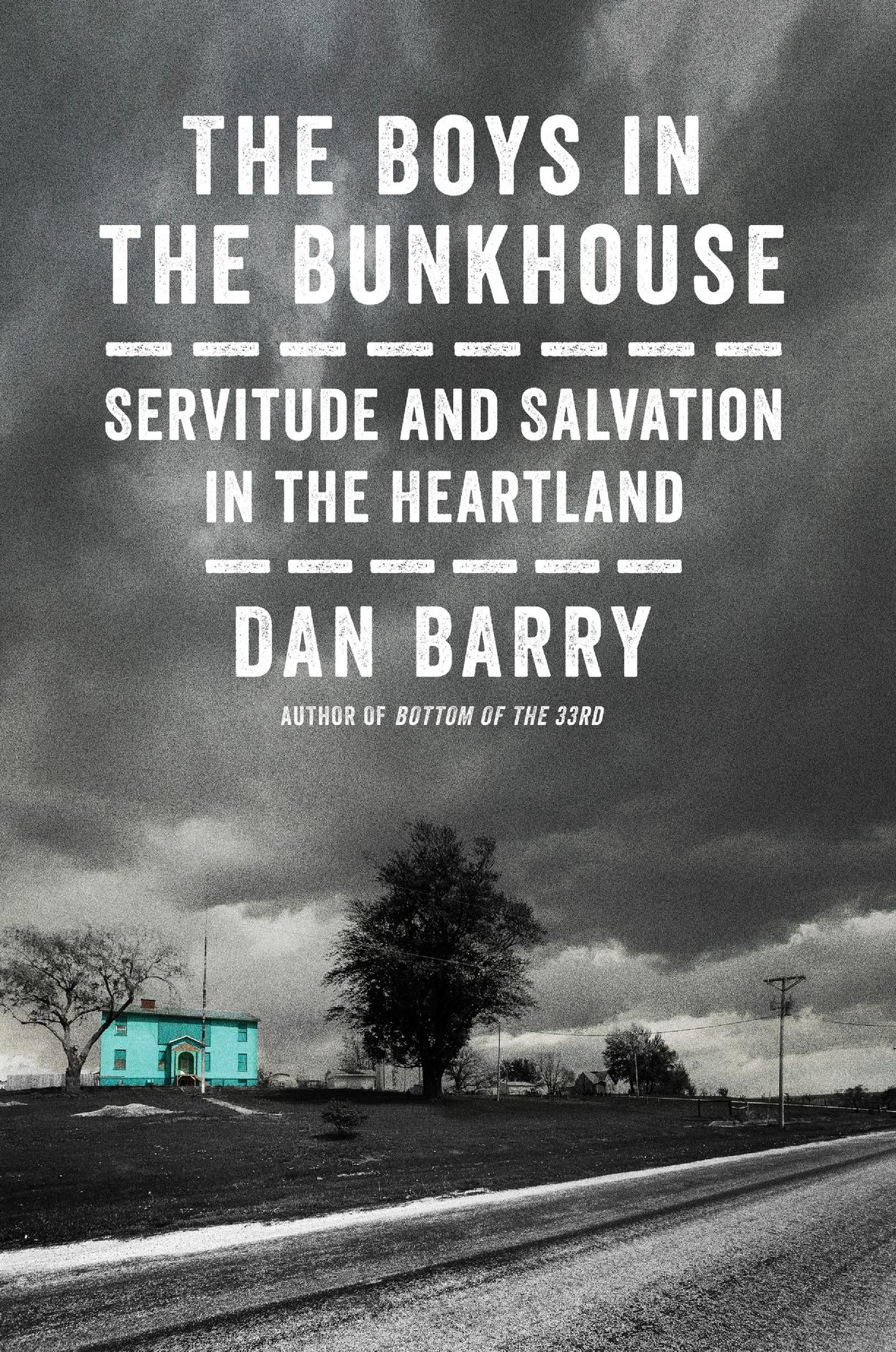
SC: The Boys in the Bunkhouse tells a starkly true story of the exploitation of dozens of mentally disabled men at the hands of one corrupt overseer, who kept these men in squalor and servitude for decades. You tell this story through literary and poetic prose, a style of writing that forms the genre of literary nonfiction. What is important to keep in mind when crafting a literary nonfiction narrative?
DB: I just had this conversation with a friend of mine, the great novelist Colum McCann – about that pursuit of truth. But he’s a novelist, and I’m a journalist. For me, what’s important in literary nonfiction is that everything is both factual and contextually accurate – and then the writer brings flesh and blood to it. You do this by vacuuming up the details that put the reader in the moment, by interviewing the subjects so exhaustively that you know what they were thinking at a given moment, and by putting it all together in a novelistic way. And then you call those subjects to make damned sure that your facts and context are true; that you have not followed your muse down a path that leads away from truth, simply because it sounds prettier.
SC: What was the most challenging aspect of your work writing The Boys in the Bunkhouse, from the idea’s conception to the book’s publication?
DB: I suppose it was in trying to understand the entire sweeps of the lives of these men, which at times was difficult because their intellectual disability often means that their sense of time’s passage is off. If I asked Willie Levi, for example, when he first came to Iowa, he might say last year – when, in fact, it was 35 years ago. These men all grew up in state institutions in Texas, many were effectively abandoned by their families, and now here they were, in Iowa. My central challenge was to corroborate their stories through repeated interviews, long visits, traveling to Texas, and poring over court documents. In the end, I learned that if Willie Levi said something happened – it happened.
SC: How has the tale of the Iowa bunkhouse, and the events that took place there, impacted or influenced your thoughts and feelings about the Midwest?
DB: I would say it hasn’t changed my affection for the Midwest in any way. I see Atalissa, Iowa, as a microcosm of all of America. Every American place is capable of negligence, of cruelty, of being blind to the quiet suffering of the vulnerable around us – just as every American place is capable of great humanitarian warmth and kindness and heroism. The men experienced all this in Iowa.
SC: Throughout your career, you have reported on an extensive and impressive amount of major American events. What story did you find the most eye-opening and impactful (if you could pick just one), and what about that story was most poignant?
DB: I am a New Yorker, and it is hard to get past the events of Sept. 11th. That day, and the year or so I spent covering its aftermath, has probably had more of an impact on me than any other story. How could it otherwise? There are so many parts of that tragedy that stay with me: the Staten Island landfill, where investigators pored over the debris for human remains and personal effects; the medical examiner’s office, where workers tried to identify an arm, or a foot, so that families could have a piece of a loved one to bury…I could go on. What sticks in my mind most is a story I wrote about the vanilla-colored dust that settled on many of the buildings in Lower Manhattan after the twinned collapse. People used their fingers to write prayers and pleas and goodbyes to loved ones, knowing full well that it was ephemeral; that soon it would be power-washed away. But it hasn’t for me and, I bet, for so many others.
SC: As both a journalist and an author, how do you navigate between the contrasting platforms of articles versus books? With The Boys in the Bunkhouse in particular, how did the story change from its original space on “The Land” to its recent book form?
DB: The original “This Land” column that appeared in The New York Times in March 2014 was several thousand words, although my initial draft was twice that. After the column ran, I had so much more to tell – so many more anecdotes and revealing moments – that I pitched the notion of a book, and, thankfully, HarperCollins agreed. I then did a lot more reporting before sitting down to write. One way that the book was different was in setting it up almost as a thriller: a social worker on duty at night gets a call from an anonymous tipster (a bunch of men with intellectual disability…working in a plant eviscerating turkeys…living in squalor…getting paid nearly nothing…) Another way was to begin with a prologue that gave one of the men voice, telling his story quickly so that the reader realizes what was at stake, and what was lost. The book allowed the men – and me – to breathe more.
SC: What’s next for you?
DB: I honestly don’t know. I think I’ll be writing the “This Land” column through this singular election year. Then after that, I guess, just find another story.
**
Dan Barry is a longtime columnist and reporter for the New York Times, and the author of four books, including the forthcoming The Boys in the Bunkhouse: Servitude and Salvation in the Heartland. His other books include a memoir, a collection of columns, and Bottom of the 33rd: Hope, Redemption, and Baseball’s Longest Game, which won the 2012 PEN/ESPN award for literary sports writing. Barry has reported on many news events for the Times, including the attack on the World Trade Center and the aftermath of Hurricane Katrina. He has been a City Hall bureau chief, a Long Island bureau chief, a sportswriter, a general assignment reporter, and, for three years, the “About New York” columnist. As the “This Land” columnist for the Times, he traveled to all 50 states, where he met the coroner from “The Wizard of Oz” in a Florida retirement home, was hit in the chest by an Asian carp leaping out of the Illinois River, and learned the bump-and-grind from a retired burlesque queen in Baraboo, Wis. Barry previously worked for the Journal Inquirer in Manchester, Conn., and for The Providence Journal, where he was part of an investigative team that won a Pulitzer Prize in 1994 for a series of articles about Rhode Island’s court system. Barry has received many other honors, including a George Polk Award; an American Society of Newspaper Editors Award for deadline reporting, for coverage of the first anniversary of Sept. 11; a Mike Berger Award for in-depth human interest reporting; an award for column writing from Sigma Delta Chi/Society of Professional Journalists; and the Best American Newspaper Narrative Award. He has also been a nominated finalist for the Pulitzer Prize twice: in 2006 for his slice-of-life reports from hurricane-battered New Orleans and from New York, and in 2010 for his coverage of the Great Recession’s effects on the lives and relationships of America. Putting all this in proper perspective was a fifth-place award for feature writing from the American Bowling Congress that misspelled his name. Barry lives in Maplewood, N.J., with his wife, Mary Trinity, ’81, and daughters, Nora and Grace.
August 4th, 2016 |
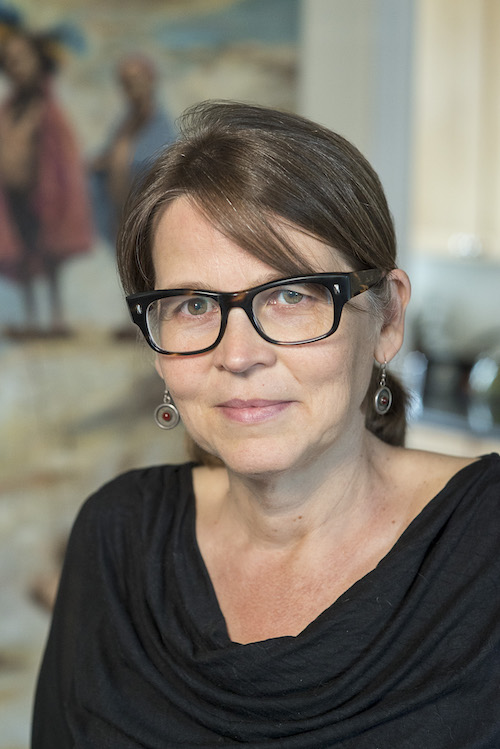 Midwestern Gothic staffer Ally Wright talked with author Lori Ostlund about her novel After the Parade, small town discretion, saving oneself, and more.
Midwestern Gothic staffer Ally Wright talked with author Lori Ostlund about her novel After the Parade, small town discretion, saving oneself, and more.
**
Ally Wright: What’s your connection to the Midwest?
Lori Ostlund: I grew up in a town of 400 people in central Minnesota. When people ask the name of the town, I often say, “You wouldn’t recognize the name, but if you’ve started in Minneapolis and driven along the interstate to Fargo-Moorhead, stopping halfway to fish, you’ve been to my town. In fact, you might have purchased fishing gear at my parents’ hardware store.” I grew up in this hardware store, and on the rare occasion that we went anywhere, it was usually to attend the annual hardware convention in the Twin Cities. At eighteen, I moved up the interstate a couple of hours to Fargo-Moorhead for college. Most of the students were like me, from the small towns and farming communities of Minnesota and North Dakota. At twenty-three, I moved to Albuquerque for graduate school, choosing New Mexico because it seemed the farthest removed— seasonally, temperamentally—from what I knew. I felt that it was important, for me as a person as well as a writer, to be out in the world, away from the familiar.
AW: After the Parade is your first novel after your well-received short story collection, The Bigness of the World. How did your writing process change between writing short stories and writing a novel?
LO: I worked on After the Parade and the collection concurrently from around 2000 to 2008. I almost always work on several things at once, switching when I stall on one project, so there tends to be cross-pollination. When I wrote “All Boy,” for example, the final story in Bigness, it started as a character study of Aaron Englund (the main character in After the Parade) at a certain age. I tend to write in an exploratory way, trying to figure out my characters first. I don’t plot things out—with stories or novels—because I simply don’t know what will happen until I get to know my characters. I always knew, from the moment I started writing about Aaron, that his story would become a novel, though it took me many years to figure that story out. I wrote hundreds of pages about him as a child before I even figured out that the novel needed to begin with him as an adult, and then I started slowly to see who this boy would grow up to be, which of his childhood traits would shape him most strongly. I discovered, for example, that he was still fearful, and so a lot of what happens in the adult sections is influenced by his attempts to finally deal with his fear. Slowly, the various pieces started to move toward one another and I began to understand what the book was about and what structure it should take.
My process with stories is similar: I start with something—a line overheard, an odd encounter—and write. When I get stuck, I close up the file and forget about it for a while. I might open it up weeks or months later, start reading, and see what happens. If nothing happens, I close it up again. Eventually, I’ll overhear something great or come across just the image I need, and the next time I open the file, everything comes together.
Novel writing is a messy process, and I think that I’m temperamentally better suited for stories. I like to believe that stories are a perfect form—it justifies my tendency to rewrite indefinitely—whereas I had to accept early on that the novel is an imperfect form. Perhaps the biggest difference in my process when it comes to stories versus novels is that there came a point in the novel writing process—the summer of 2103, to be specific—when I had to find a way to hold the whole book in my head. Thus, from May to August, I wrote between 70 and 90 hours a week, mainly sorting through the hundreds of pages that I had already written—discarding, organizing, writing several hundred pages more—until I had my first draft.
AW: Both your short story collection and your novel share similar themes, especially family tension. However, After the Parade is much darker and more violent than the stories in The Bigness of the World. What did you find changed in your writing process as you accessed those darker themes and more traumatic moments?
LO: I’m not sure that anything changed in my process, and while I do think that the novel has more violence and darkness, it’s interesting for me to see how readers view it: there are those who find it “too dark,” while others call it “inspirational.” Neither of those matches how I felt as I wrote it, perhaps because “inspirational” is a word I’m always a little suspicious of. For me, a better word would be hopeful, largely because Aaron figures out how to take more control of his life, moving beyond fear and passivity. I do know that I found myself thinking, as I wrote, about how to deal with certain situations and characters honestly yet compassionately—with the exception of Aaron’s father. I felt no real compassion toward him as I wrote. At times, I worried about this, thinking that maybe he needed a backstory, but then I decided that a backstory wasn’t going to change the fact that he was cruel to his son, and within the context of the book, that’s his legacy. Aaron’s mother Dolores was, in some ways, the most difficult yet compelling character to write because I knew that some readers would be automatically turned off by the fact that she abandons Aaron, yet I never felt that way about her. Maybe the book reflects my worldview, which is that many people experience trauma, but some choose to take it out on others and some do not, though in the case of the latter, this often means taking it out on oneself, which is Aaron’s story, I guess.
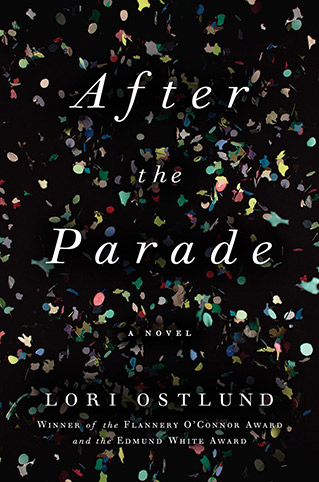
AW: After the Parade has a lot to do with abuse and trauma, and that trauma almost exclusively takes place in small-town Minnesota. How did the setting inform the events that unfolded for the main character, Aaron?
LO: One aspect of small town life that always intrigued me is the way that its citizens agree to mind their own business, for better or worse. For example, there is a character in the book, Betty Otto, who lives behind Aaron and his mother and shoots her gun constantly. She is based on a neighbor my family had growing up, a woman who filled the back of our house with bullet holes because she was always outside shooting off her gun indiscriminately, hoping to kill a few squirrels. Our orders from my parents were to come inside when she was shooting. She actually killed the neighbor boy’s puppy in this way, shot it as he was playing with it. Yet nobody wanted to make a “big deal” out of the situation because it was her gun and she was a neighbor. I can remember the moment when I realized, truly realized, how crazy this was: my wife, who had never been around guns, came to my parents’ house with me for the first time, and when I showed her the bullet holes, I saw them entirely through her eyes. Of course, there is something good that comes out of the small-town emphasis on living together at all costs, and I touched on this in the book, yet I saw an opportunity as well to explore the ways in which people live closely together and allow one another to maintain secrets. Early on, when Aaron prepares to break down the motel room door to save a boy that is being beaten, he pauses for just a moment, “the full weight of his good-fences-make-good-neighbors upbringing bearing down on him.”
AW: There are three different settings in this novel– Albuquerque, San Francisco, and Minnesota. How do these three settings interact with each other? How does Aaron see himself moving through and interacting with these different landscapes and places?
LO: Those three settings are connected first by the fact that I lived in all three places, and my life often has an osmosis-like effect on my writing. In 2005, just as I was beginning to realize that Aaron, my main character, whom I had written about only as a child at that point, needed to become an adult, I moved from Albuquerque to San Francisco, and so that move became Aaron’s trajectory also. Because he is—by nature and circumstance—passive, each move in his life until then has been orchestrated by someone else: his mother moves him to Mortonville after his father dies; Walter takes him away from Mortonville and pays for him to go to college; they eventually become lovers and move to Albuquerque because of Walter’s job at the university. San Francisco is the result of his realization that he needs to leave Walter in order to become his own person, and it is there that he lives alone for the very first time, at the age of forty-one. Cities are always good for lending anonymity and underscoring one’s feelings of being entirely alone, so it made sense to me that in this place, where he spends his days walking and teaching, the past would finally come crashing in.
AW: You’ve been described (and described yourself) as a Minnesotan writer. What does this mean to you? Where do you see yourself situated within the larger scope of Midwestern literature?
LO: First, there is a dark humor in the Midwest that I am very drawn to. The title After the Parade, for example, refers to the fact that the father of the main character, Aaron, falls from a parade float, onto his head, and dies when Aaron is five. Years ago, I heard of someone dying in this way, and it struck me as at once tragic and humorous, an intersection of emotions that I am always drawn to.
Second, because I was very shy as a child, I was no good at dealing with customers in my parents’ hardware store, but I think that most of what I know about emotional restraint and language was learned there, as I listened to the way that people talked: where they paused and what they said and, more important, what they did not say. Often, something would be discussed, a long pause would follow, and then someone else would begin a seemingly new topic. I quickly learned that there was meaning in these juxtapositions, and I liked to fill in the connection, unstated, that existed between the two. I like writing that happens around emotion to be subtle, and I live in fear of being called sentimental, so I spend a lot of time worrying about whether a detail or observation overstepped in some way. One of my favorite writers is Kent Haruf, who was technically a Plains writer, but his novels about the small town of Holt, Colorado, affect me deeply. He’s so perfectly restrained on the page. I don’t think I’ve ever read one of his novels without crying through entire chapters of it. I don’t know that I’ve thought about where I’m situated specifically, but there are numerous Midwestern writers I love, including Willa Cather and Louise Erdrich.
AW: After the Parade is set partly in small-town Minnesota. What is it about Minnesota that makes it figure so heavily in your writing? What is the most appealing thing about writing about small-town life?
LO: I think that I’ve addressed this above.
AW: After the Parade has a preoccupation with being saved—whether by another person, or by your own actions—and it seems that being saved has a lot to do with mobility and escape. How did you envision that mobility as an agent of salvation?
LO: What a great question. Though Aaron and I are quite different—he’s passive and fearful and paralyzed by the past in ways that I am not—we have in common that we were born into small towns in Minnesota in 1965, at a time when it was not okay to be gay. Moreover, Aaron is sensitive and drawn to words. I’ve known numerous boys and men like Aaron, and the world was and continues to be a hostile place for them.
My parents were extremely religious, and the ongoing message was one of conformity. Though I did not understand then that I was gay, I did understand that I felt trapped, that there was no room for me to become the person I wanted to become (of which being gay was just one part), so I have always been interested in narratives of departure. I often joke that I am no good at making small changes, but I am quite at ease with big ones, particularly leaving. In 1991, when I had finished my master’s degree and was contemplating doctoral programs and thus a life in academia, I instead moved to Spain and quickly accepted that academia was not for me. I learned that I wanted to be out in the world, writing about it, and several years later, when I found myself feeling discouraged and overwhelmed as an adjunct teaching 5 comp classes a semester, I again fled. My partner and I moved to Malaysia for nearly two years. I suspect this desire to constantly be moving on is rooted in the fact that I spent the first eighteen years of my life confined to a very small place, and all of this—realizing that I was gay, pursuing my intellectual curiosity, traveling ever farther out into the world—I consider all steps in the act of saving myself.
From my trajectory grew Aaron’s. In terms of narrative appeal, departures are often fraught with conflict. When we leave a place, we are either going away from something (a failed relationship or career, a disappointment) or toward something. In Aaron’s case, he is doing both. He is leaving a twenty-year relationship because he has accepted that he is no longer in love, yet this step is mired in guilt because Walter pulled him out of his small town, gave him a home, and paid for him to go to college. Given the situation, Walter quite literally saved him, allowing him to have the intellectual life he craved, though this has come at a cost: their relationship has always had a Pygmalion-like quality, and thus, he is at once grateful to Walter and resentful of him. As I got to know both the adult Aaron and the child Aaron better, I knew that the book needed to begin with his departure, and his departure struck me as the first step in the act of saving himself.
AW: What’s next for you?
LO: I find it very hard to start new projects—I would much rather be in the midst of something—but I have a second story collection nearly finished, made up of stories that I’ve been working on since the first collection came out in 2009, one of which will appear in New Stories from the Midwest 2015. I’m also working on a second novel. This first novel drew on my experiences as an ESL teacher, and the next novel will draw on the 7+ years that my wife and I spent as owners of an Asian furniture store. The book, tentatively entitled The Proprietresses, is set in Albuquerque, where we lived for 14 years, and perhaps in Malaysia, where the idea for the store came about when we were teaching there. I’ve no doubt that Minnesota will also make its way into the narrative.
**
Lori Ostlund’s novel After the Parade (Scribner, 2015) was shortlisted for the Center for Fiction First Novel Prize, and was a Ferro-Grumley Award finalist and a Barnes and Noble Discover Great New Writers pick. Her first book, a story collection entitled The Bigness of the World, won the 2008 Flannery O’Connor Award, the Edmund White Debut Fiction Award, and the 2009 California Book Award for First Fiction. Stories from it appeared in the Best American Short Stories and the PEN/O. Henry Prize Stories, among other places. Lori has received a Rona Jaffe Foundation Award and a fellowship to the Bread Loaf Writers’ Conference. She is a teacher and lives in San Francisco with her wife and cats, though she spent her formative years in Minnesota, cat-less.
July 28th, 2016 |
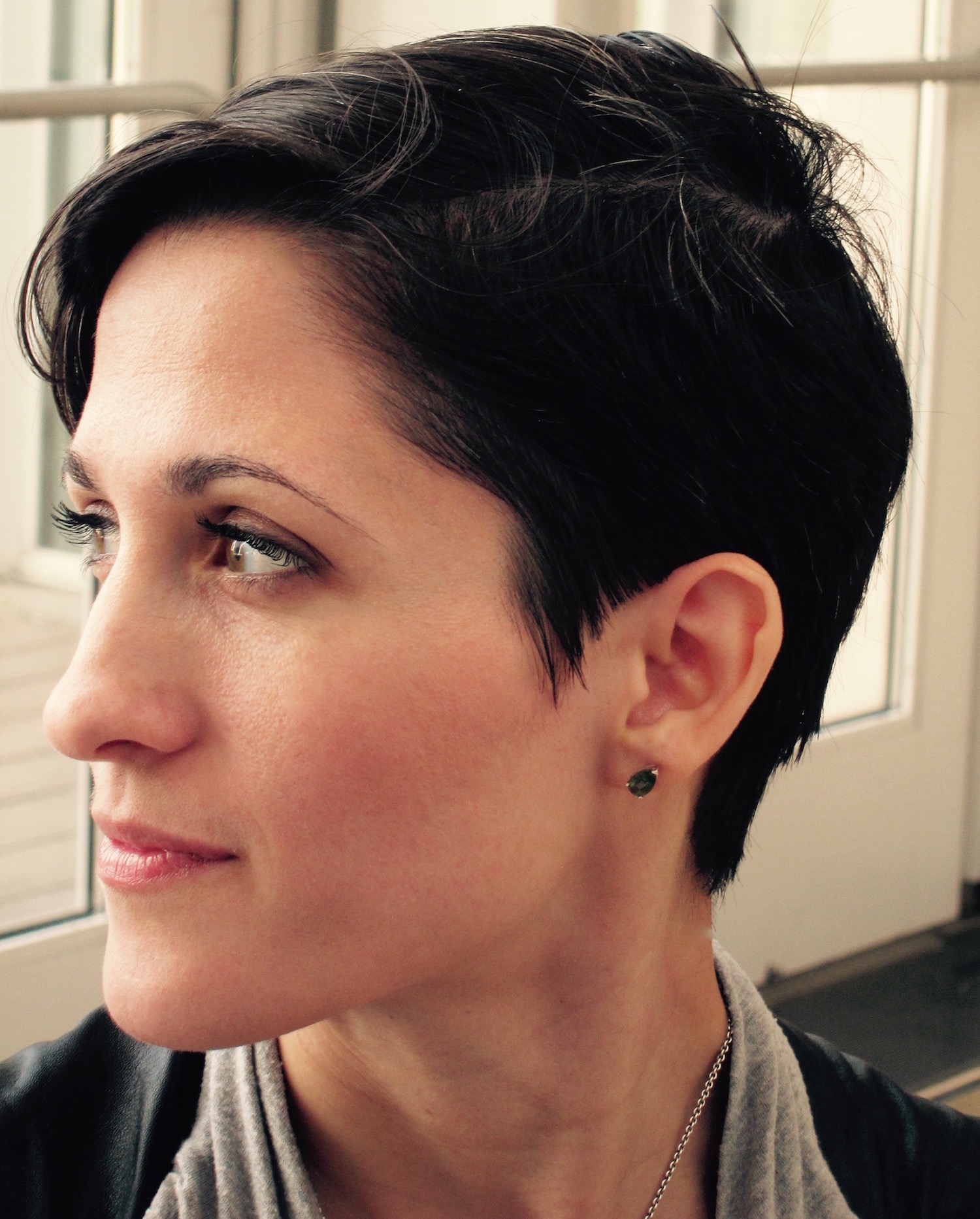 Midwestern Gothic staffer Sydney Cohen talked with author Maryse Meijer about her new collection Heartbreaker, reversals of power, writing as an act of fantasy, and more.
Midwestern Gothic staffer Sydney Cohen talked with author Maryse Meijer about her new collection Heartbreaker, reversals of power, writing as an act of fantasy, and more.
**
Sydney Cohen: What’s your connection to the Midwest?
Maryse Meijer: My twin sister moved to Chicago seven or eight years ago, and when I came to visit her in the city I knew I wanted to live here. I feel like Chicago has just as much to offer as New York, but it’s a bit slower here, and cheaper, and we have the lakefront, which is beautiful. I’m from California, born and raised in the central valley, and I spent 10 years in Santa Cruz. I love California, but the midwest feels like home. It’s a cliche, but I missed seasons! And I am obsessed with snow. My husband is from Ohio, as is my brother-in-law, so perhaps there’s something about the people here, too…
SC: Your debut collection, Heartbreaker, spotlights women who live unsettled lives of disarray and fierce emotion. What inspired you to write about these women and their environments? It has been described as a book that “breaks open taboos about sex, disability, melancholy, and violence.” In terms of these themes, what would you say is the taboo, or expected, way of discussing them, and what was your purpose in shattering these expectations?
MM: I don’t set out to write a certain kind of story, but there are themes and ideas I seem to circle around. I’m a feminist – I wish this would go without saying, but there are still women (and men) who hesitate to identify themselves as such – and I’m interested in how patriarchal ideas about love and romance and sex affect everyone in our society. Especially in terms of power. One thing that became clear to me as I was looking at the collection as a whole was how often the stories feature reversals of power; a young girl might become a stalker, another might menace a group of boys, a child might terrify an adult, an animal might have the upper hand in a relationship with a human, etc. I don’t know what’s really taboo in our culture these days, but I think confronting systems of power is always controversial. This is not to say, however, that anyone in this collection is using their power for good – most of the time, people are making a mess of things wherever they go, with whatever they have. So if a woman has the power in a relationship, as the girlfriend does in “Jailbait,” but she lives in a patriarchy, she’s probably going to behave the way men do when they have the power – that is, not well. Sometimes taking things out of their usual context sheds new light on old ideas.

SC: How has the Midwest in particular inspired your work?
MM: Writing about places has always been difficult for me – I haven’t yet been moved to write about a place, per se. I’m more interested in spaces – interiors like cars, shops, bedrooms, etc. So the where of the stories feels claustrophobic, generalized, displaced. It’s not purposeful. Partly I don’t like the pressure of having to get a place “right” – if I said a story was set in Chicago, I know readers would grumble about how my Chicago doesn’t resemble their Chicago – and so I chicken out on being specific. It’s probably something I should push myself to try sometime. But I think weather affects me – my impressions of places seem to have a lot to do with the weather I experience there. Heat, for example, I will always associate with the central valley. And now that Chicago has introduced me to snow I find myself moved to write about winters – and thunderstorms, I love the storms here. I understand lightning a little better now. Chicago also has the most beautiful fall – my favorite season. I’d love to capture, someday, the particular fall of this place. If you see a leaf in one of my stories, it’s a Chicago leaf! And the rain is Chicago rain. And wind. Oh my god the wind.
SC: Your collection involves women who experience torrid and intense emotions. How did writing these characters affect your own emotional state, or the ways in which you view the world and others?
MM: Sometimes a story will scare me, or make me feel uncomfortable. I hope, usually, that this is the case! When I was writing “Fugue” I felt like I was casting a spell on myself. It wasn’t pleasant. The same with “Whole Life Ahead” – both of those were hard to write in the sense that I felt they went to a very ugly place, and I was just along for the ride. But the pleasure of writing mitigates any negative feelings I have about certain topics – if I feel a story is going to an interesting place, I want to be there, even if I’m scared. I want to see what happens next. In the first stages of a draft, the story is telling itself to you, and so there’s a pleasure in being your own audience.
As for how writing affects my view of other people…I don’t think I’ve ever written about someone I didn’t like, at least a little. So if anything, writing reminds me to be generous. People are lonely. People fuck up. People try. I’m still an optimist.
SC: How much of yourself do you find in the characters and stories you write? Do you find that this reflection is conscious or subconscious?
MM: I don’t write about my life, or people in my life, or things that have happened to me. The idea of writing directly from my experience bores and confounds me. My editor once expressed surprise that I’ve never written about being a twin, for example, or about having children. When I tried to imagine how I would go about doing those things I drew an absolute blank. I just don’t have the desire to rehash my life on the page; it’s enough to live it. And, too, I don’t think at all about how much of me is my work; to me, writing is an act of fantasy. Certainly my general concerns about people and life and ideas are reflected in what I do, but I don’t analyze it.
SC: What draws you to the genres of gothic, fantasy, and fairytale?
MM: I like to be in spaces that feel a little extreme, and the genre elements of my writing maybe reflect that desire, though I do think of my work as mostly “realistic,” if that term means anything these days. I mean, when I write I feel like I’m writing about real people in real situations. For example, “Love, Lucy” is a story about the antichrist and while some people interpret the antichrist thing as being a metaphor, I actually consider Lucy to be, well, the antichrist. As well as a metaphor. And it seemed plausible to me as I was writing it, that, sure, the antichrist could be a real thing and this is what she might be like. In some ways I’m supremely literal and I believe what the stories are telling me. This is partly why I thought “The Blair Witch Project” was a true story for about 3 months after the movie came out…
SC: Heartbreaker is your debut collection. What is important to keep in mind when writing short stories?
MM: Hm…I think it’s important to keep in mind that you can do whatever you want in a story. There are no rules. If you believe it, if you work as hard as you can to be as precise as you can be about the world you’re in, then you’re there. I like to feel that a story is being honest – that it cares about its own truth, that there is nothing gimmicky or done just for effect or out of laziness. I think this sense of honesty is what draws us to the work we like – even if it’s a Stephen King horror novel, or a George Saunders story, or a sci-fi book about anorexic aliens with a dirty sock fetish – we believe it, we trust it. The content doesn’t matter – it’s the heart with which it’s presented.
SC: What’s next for you?
MM: I have a lot on my plate these days – I’m working on another collection of stories, finalizing a book of poems, starting a new novel, and revising a first novel. And then I’m taking a nap.
**
Maryse Meijer’s work has appeared in or at Meridian, Drunken Boat, St. Ann’s Review, Portland Review, Dallas Review, actual paper, Joyland, and elsewhere. Her story collection, Heartbreaker, is forthcoming this summer from FSG Originals. She lives in Chicago.
July 21st, 2016 |
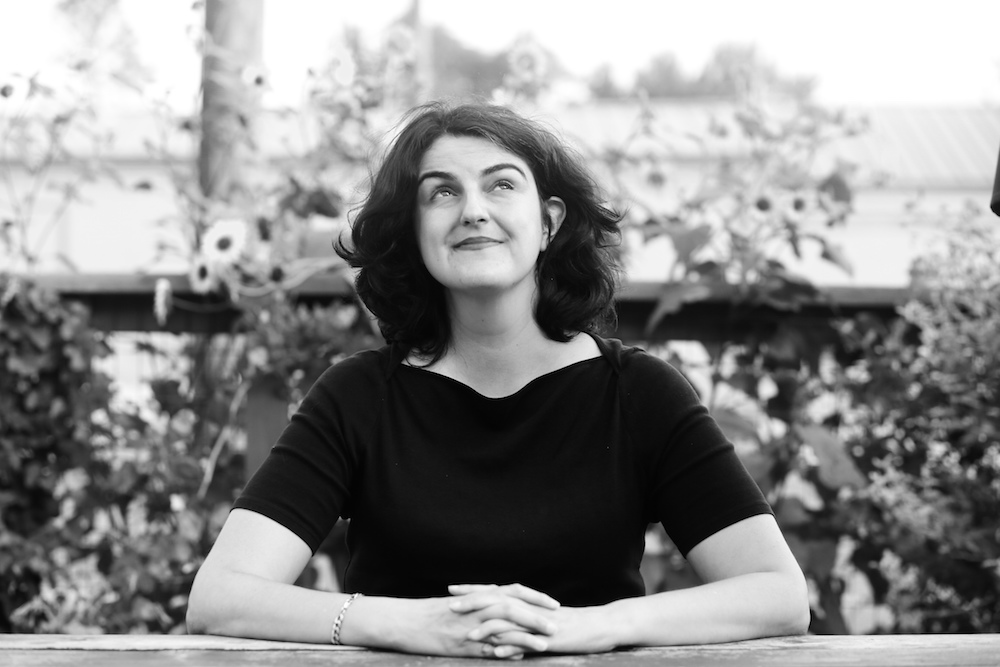 Midwestern Gothic staffer Giuliana Eggleston talked with author Mo Daviau about her novel Every Anxious Wave, time travel, the influence of indie rock music in her novel, and more.
Midwestern Gothic staffer Giuliana Eggleston talked with author Mo Daviau about her novel Every Anxious Wave, time travel, the influence of indie rock music in her novel, and more.
**
Giuliana Eggleston: What’s your connection to the Midwest?
Monique Daviau: My ex-husband, actually. He is a chubby beer-and-cheese loving Wisconsinite, who I happened to find at a comedy club in Austin, Texas. Bob is constitutionally Midwestern, down to the fact that he never owned snowboots growing up–he wore his white sneakers in the Sheboygan snow. I’m not sure if that is a constitutionally Midwestern thing–I for one am in favor of appropriate seasonal footwear.
I lived very briefly in Chicago with Bob and hated it. Then I moved to Ann Arbor for my MFA at Michigan, which I loved. I’ll be honest–I am incredibly happy being back on the west coast. I grew up in California and now live in Oregon. I just got back from a trip to see one of my college pals in her hometown of Des Moines, Iowa, and was totally charmed by the city, so I do make it back to the great Midwest every now and again.
GE: Your new novel Every Anxious Wave, takes place in many different locales–Boston, Portland, Seattle, and Montana to name a few–but Karl’s time travel base is his apartment in Chicago. Why did you choose to set it there? What made Chicago the ideal location?
MD: I started writing the book while living in Chicago, and it worked because there are a lot of bars and its a city where there is a critical mass of physicists. I’ll be honest, I’m actually the world’s worst person to wax rhapsodic about Chicago. Chicago is the least important or interesting thing about my novel, to me at least. But it seemed like the place where Karl would land and Lena would get her PhD. There is a bar in Chicago–the Inner Town Pub–that is the basis of Karl’s bar in the novel. Chicago has a unique bar culture that Karl could easily capitalize on.
GE: Did you have any difficulty writing a time travel plot? How were you able to work out all the time travel plot changes? Did you enjoy writing about time travel?
MD: I didn’t find it difficult at all! It’s actually a pretty linear novel, time-wise, with jumps backwards here and there. I am pretty obsessed with time travel, insofar as I am inconvenienced that my life starts in 1976 and will end in 20?? and I will never have access to life and people outside of that time frame.
The changes caused by time travel I kept track of in a separate document. They were mostly character changes, with regards to how, say, erasing an abusive stepmother might change a character’s demeanor and outlook.
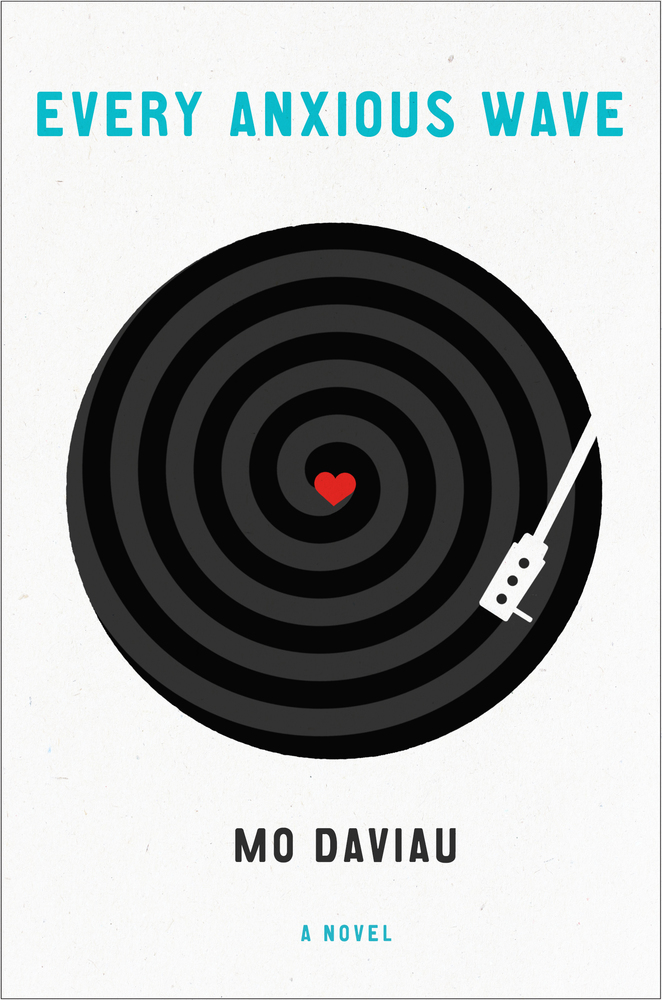
GE: Was there any research necessary to write about the different times? Specifically Mannahatta 980?
MD: A little bit. There is no recorded history from North America in 980, so it was all speculative, and vaguely based on recorded history from the 1500s and from the book Sex at Dawn, which describes hunter/gatherer societies.
GE: Music–specifically indie rock–seems to be a large part of this novel, beginning with Karl initially using the wormhole in his apartment to allow people to see concerts in the past, and setting up the action of the story when Karl’s best friend, Wayne, gets stuck in 980 Manahatta in a failed attempt to save John Lennon. How were you inspired to write the musical aspects of this novel?
MD: I’m a big indie music geek and have been for over twenty years. In terms of research for that, I only looked up on the internet the dates and locations of a few shows. The musical knowledge was all in my head thanks to years of obsession. I think I had read something once about, if John Lennon had not been murdered, music in the 1980s would have been completely different. I’ve thought about this a lot and have concluded that I’m not the one equipped to supply reliable conjecture on how music in the 1980s would have been different if Lennon had lived. But that was where the idea of Wayne saving John Lennon had come from.
GE: How did you go about creating the characters of Karl, the bar-owning protagonist of the novel, and Lena, the helpful astrophysicist and romantic interest? How did you form their romantic relationship?
MD: My characters find their personalities and desires over time. Whenever I start a novel, I get angry with myself because the characters in the beginning seem so flat to me, but over time they get more real.
A lot of people have commented that they don’t find Karl and Lena’s romance to be realistic, but that just tells me they haven’t run into the kind of guy who meets a girl he can talk to about music or whatever, falls madly in love based on that, and that’s it. He’s all in. I’ve come across a few guys like that in my life, and the fact that Karl’s still doing that at 40 makes even more sense–you meet older men who meet and marry women on a timeline that I might think of as rushed, but that happens a lot. That’s why their romance is so sudden.
GE: What was your process like developing the relationships in the novel? Did they always come naturally or were some more difficult to unfold?
MD: I say that writing a novel is like doing a long improv scene in my head over the span of years. I suspect that their relationship developed in some of the scenes that I ended up rewriting or cutting from the novel altogether. Even when I’m not actively writing, I think about my characters doing things like shopping together or having a fight over something trivial. A lot of this comes from my years of improv comedy training. If you want to write really solid characters, take an improv class.
GE: Are there any authors or books that have inspired you in your writing?
MD: I’m going to pass on this question.
GE: What’s next for you?
MD: I’m working on a new novel, and am about halfway done with it. This one is about a relationship guru and a New Age retreat center like the Esalen Institute. I’m sad to say there is nothing Midwestern about it.
**
Mo Daviau was born in 1976 to a very unusual couple in a widely disliked city in California. A graduate of Smith College and the Helen Zell Writers’ Program at the University of Michigan, she now lives in Portland, Oregon, with her stuffed crocodile.
July 14th, 2016 |
Steven Lang, whose photo “State Fair 2015” graces the cover of Issue 22 (Summer 2016), was kind enough to chat with us about how he was able to capture this photo, and what it means to him.

Steven: The Minnesota State Fair is the second largest state fair in the country (after Texas, whose fair runs twice as long). Its yearly attendance is higher than the population of Nebraska, and in a single day as many as 250,000 people can visit. The fairgrounds, nestled in the heart of the Twin Cities metro area, has its own water tower, space needle, and permanent police force. And, it is an endless source of photographic opportunity. On this particular day, I arrived early and soon exhausted myself taking in all the usual attractions (food vendors, cattle and horse shows, craft and horticulture exhibitions, games of skill, people watching) and also taking dozens if not hundreds of photos. It had already been a long day, and I was on my way out. The Skyride terminates at the fairgrounds’ northwest exit. By this time, my camera was put away “for the day.” But when I looked up, the primary colors and iconic shape of the cable cars made me reach for my camera one last time. I waited a moment for the cars to advance and took a final picture. Then I turned around and stayed the rest of the day. I still get queasy looking at those cables. I haven’t been on the Skyride in years.
**
Steven Lang was born and raised in St. Paul and earned a B.F.A. from the University of Minnesota. He currently lives just a ten minute walk from the Minnesota State Fairgrounds. He is a photographer and writer, with fiction published in the Milkweed Editions book Fiction on a Stick, and in the book The Art of Wonder, published by the Minneapolis Institute of Arts. His photography has appeared in Der Greif, Momma Tried, Minnesota Monthly, and other publications.
July 13th, 2016 |
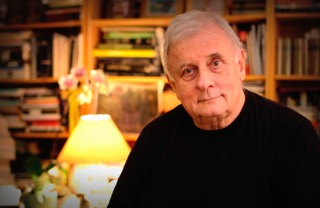 Midwestern Gothic staffer Giuliana Eggleston talked with author Edmund White about his novel Our Young Man, the era of supermodels, the difficulty of writing about same-sex love, and more.
Midwestern Gothic staffer Giuliana Eggleston talked with author Edmund White about his novel Our Young Man, the era of supermodels, the difficulty of writing about same-sex love, and more.
**
Giuliana Eggleston: What’s your connection to the Midwest?
Edmund White: I was born in Cincinnati, lived in Evanston, Rockford, Detroit and Ann Arbor. I went to Cranbrook in Bloomfield Hills, Michigan and the University of Michigan in Ann Arbor. At 22 I moved to New York. The dedicatee of my novel, Christopher Bollen, is also from Cincinnati
GE: Your new novel, Our Young Man, follows Guy, a french model at the top of the New York fashion world of the 70’s and 80’s, with looks that appear inexplicably young well into his 30s. What steps or research did you undertake to accurately describe the New York fashion world at that time?
EW: Throughout the 80s I worked for American Vogue (but in Paris). I interviewed lots of models, agents, editors and hair stylists.
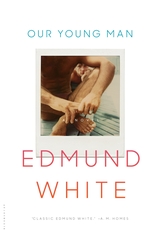
GE: Your new novel deals with the idea of living a life of luxury at a cost, as well as the importance of appearances over personal depth. Why did you choose to write about these binaries that shed light on the pitfalls of what appear to be a glamorous life?
EW: I’ve always been interested, like most people, in physical beauty and I’ve know beauties of both sexes—actors, models, dancers, athletes.
GE: You show how the lie Guy lives hinders aspects of his life – like finding love and being valued for more than just his physical beauty. How do you feel the lie Guy tells about his age in order to secure wealth relates to lies people tell everyday?
EW: Guy is fairly innocent, certainly clueless. He’s anything but a schemer. His manager, Pierre-Georges, is the real schemer.
GE: What made you choose the background of the disco era and the danger of AIDs for this novel? Do you see Guy’s survival as being both personal and representative of the era?
EW: I chose 1980 because that’s the moment models became super-models and people started knowing their names. Both Club 7 in Paris and Studio 54 in New York were an electric combination of straight and gay, men and women, celebrities and climbers. Like Guy, I’m a survivor of that tragic era.
GE: How have your life experiences influenced your writing? From where do you draw your inspiration?
EW: Many of my books (not this one) have been autobiographical. As a midwesterner who lived in New York and Paris, I’ve been “initiated” twice over.
GE: You have been writing about same-sex love for much of your writing career, which started in the early 70’s. How has writing about same-sex love changed over time? What obstacles did you initially face, and what obstacles do you still face?
EW: In the 60s my fiction wasn’t published. Even gay editors were afraid to touch it. The wonderful woman reviewer in the New York Review, Diane Johnson, admitted that she felt alienated by gay sex. I hear that from many even sophisticated readers. It’s what I call the “cock and balls” problem — hard to swallow for the general public. Whereas black fiction and Asian fiction and women’s fiction crossed over to the mass market, gay writing has been harder to assimilate. Now that gays are getting married and divorced and having children, maybe their experiences will be easier to identify with.
GE: What’s next for you?
EW: Now I’m writing a memoir about a life of reading.
**
Edmund White has written some twenty-five books and edited several anthologies. He is perhaps best known for his biography of French writer Jean Genet, for which he won the National Book Critics Circle Award. He is also the author of a trilogy of autobiographical novels — A Boy’s Own Story, The Beautiful Room is Empty, and The Farewell Symphony. His novel, The Married Man, takes place in France, the United States and Morocco and deals with the intimate psychological repercussions of AIDS. He has written brief lives of Marcel Proust and Arthur Rimbaud and a book about unconventional Paris called The Flaneur. His most recent published works of fiction are Chaos and Hotel de Dream and Jack Holmes and His Friend and a recent non-fiction book is City Boy, a memoir about New York in the 1970s. His memoir, Inside a Pearl: My Years in Paris, came out in 2014. In 2016 he published a novel, Our Young Man. He has been named the official author for the State of New York, he is a member of the American Academy of Arts and Letters and an officer in the French Order of Arts and Letters and a winner of the France-Amériques award and of the Mondello prize in Sicily. He teaches writing at Princeton and lives in New York City.
July 7th, 2016 |
 Midwestern Gothic staffer Ally Wright talked with author Elizabeth McKenzie about her novel The Portable Veblen, what it means to have a “freelance” character, the role of translation in her novel, and more.
Midwestern Gothic staffer Ally Wright talked with author Elizabeth McKenzie about her novel The Portable Veblen, what it means to have a “freelance” character, the role of translation in her novel, and more.
**
Ally Wright: What’s your connection to the Midwest?
Elizabeth McKenzie: My mother was born in Chicago and lived in Western Springs until she was about 10. Another part of the family went back a few generations in Waukegan, Illinois. The family connections are mostly gone now but I’ve been editing the Chicago Quarterly Review with founder Syed Haider since 2003 and that brings me to Chicago pretty often.
AW: The title character of The Portable Veblen is named after the Norwegian philosopher and economist Thorstein Veblen. How do you see the novel engaging with the ideas of the economist?
EM: That’s a big piece of the book, the foundation really. The character Veblen identifies with Thorstein Veblen for a bunch of reasons, not just his writings. She’s part Norwegian, she appreciates his loner and outsider status, she’s fascinated by his eccentric life story and interests, and has been trained to live a spare and modest life by her mother who named her after Veblen to begin with. Thorstein Veblen infuses her belief system and shapes her life in Palo Alto which has become really fancy and affluent in the past twenty years, standing in stark contrast to the humble Palo Alto of the past when Thorstein Veblen lived there in a handmade shack.
AW: This novel has been described as “a romantic comedy,” “a screwball comedy,” and “a morality tale.” How do you feel about theses characterizations of the novel?
EM: I like hearing it described as a comedy. Morality tale sounds a little foreboding—but it’s true that ethical issues are at the heart of the book and test the characters.
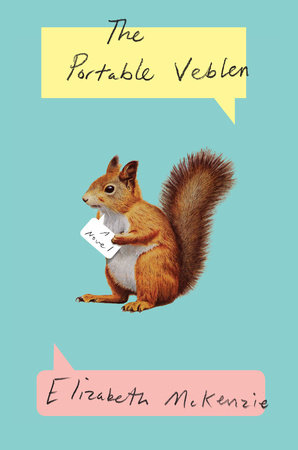
AW: What particular challenges did you face in writing a comedic novel? How is that process different from other writing for you?
EM: Writing comedically or satirically is my natural bent, so the real challenge is how to put that together with the serious and tender aspects of the novel, how to keep everything in balance.
AW: Veblen is a volunteer translator working in the Norwegian language. How does the act of translation function in this book and in Veblen’s mind? What is the role of translation in the novel?
EM: It sounds like you’re picking up on the thematic role of translation, which I appreciate. Veblen is in fact aware that she’s been a “translator” for her mother forever, trying to get other people to understand what her mother “really means” because she loves her mother and knows how deeply her mother is misunderstood by the world. This habit of fellow feeling and trying to convey to others what the misunderstood are really trying to say is part of who Veblen is and is a place she feels comfortable. And yet, she also sees her forays into another language or into the minds of others as a necessary escape, a way to maintain her equilibrium. This extends to Thorstein Veblen and even the squirrel who lives outside Veblen’s house. Veblen is empathetic to the point of being stretched too thin herself. This is something she starts to realize over the course of the novel.
AW: Veblen seems to walk the line between eccentricity and insanity, and the whimsy of this novel is contrasted against the trauma that both Veblen and her fiancé Paul have undergone in their lives. How did you work to balance those two things in the process of writing this book?
EM: Mental illness is an important thread, but I never thought of Veblen as insane or having mental illness, in fact the opposite. I think with depth of characterization you might find just about anybody “insane.” We all work at civility and imitate each other’s behaviors in order to fit in, but what happens if you don’t have a model for fitting in, what happens if you simply behave instinctively and as you are? It’s been said that insanity is a reasonable adjustment to an insane world, there’s that whole line of thinking. The novel also deals with the ways the mentally unhinged harm the people closest to them, as if to say it’s not always an heroic stance to be insane in an insane world. And then there’s another thread in here, of brain injury and brain damage, both literally and figuratively.
AW: You describe Veblen as a “freelance self.” What exactly does that mean for her?
EM: Freelance is an interesting word, embracing what seems to me a contradiction. From its origin, you have “free,” at liberty, and “lance” which refers to being available for hire, in the past a lance being a mercenary knight or soldier. Maybe the underlying point being that one is never really free even if one has no single master. But Veblen, while not committed to any employer, is available to whoever needs her—and her role or skill is simply being a self. Not so much a professional self but a freelance one. I think the narrative voice is describing her in a way that would please her and still acknowledge with a note of irony the sacrifices she has made.
AW: Veblen has a peculiar fascination with squirrels; she takes one on a sort of road trip at one point in the novel. Where did that come from? What made you choose squirrels in particular?
EM: It’s hard to be indifferent to squirrels when they sit in the trees outside your windows. They’re here to be reckoned with! They crept in to the narrative the same way they creep into attics, and so I had to figure out why and what they meant to me. I explored a lot of squirrel-related material, even allowing the squirrel to talk for awhile, but finally let the squirrel be the squirrel of Veblen’s projections instead. And of course squirrels seem to be hated by a lot of people, which created a useful clash between Veblan and Paul with deeper significance.
AW: What’s next for you?
EM: I’m working on several new things but they’re so new that they’re scarily bad, so it’s hard to to talk about them! We have new issues coming out now of both magazines I work on, Chicago Quarterly Review and Catamaran Literary Reader, so we’ll be planning some readings and events for those, and I’ll be teaching at the Catamaran Writing Conference in Pebble Beach this summer with Charlie Jane Anders and Elizabeth Rosner and Molly Gloss and Zack Rogow and Frances Lefkowitz, and that’s a lot of fun.
**
Elizabeth McKenzie is the author of The Portable Veblen, published in 2016 by Penguin Press and 4th Estate, and currently shortlisted for the Baileys Prize for fiction. Her work has appeared in The New Yorker, The Atlantic Monthly, Best American Nonrequired Reading, and the Pushcart Prize Anthology, and recorded for NPR’s Selected Shorts. Her collection, Stop That Girl, was short-listed for The Story Prize, and her novel MacGregor Tells the World was a Chicago Tribune, San Francisco Chronicle and Library Journal Best Book of the year. She is the senior editor of the Chicago Quarterly Review and the managing editor of Catamaran Literary Reader.
June 30th, 2016 |
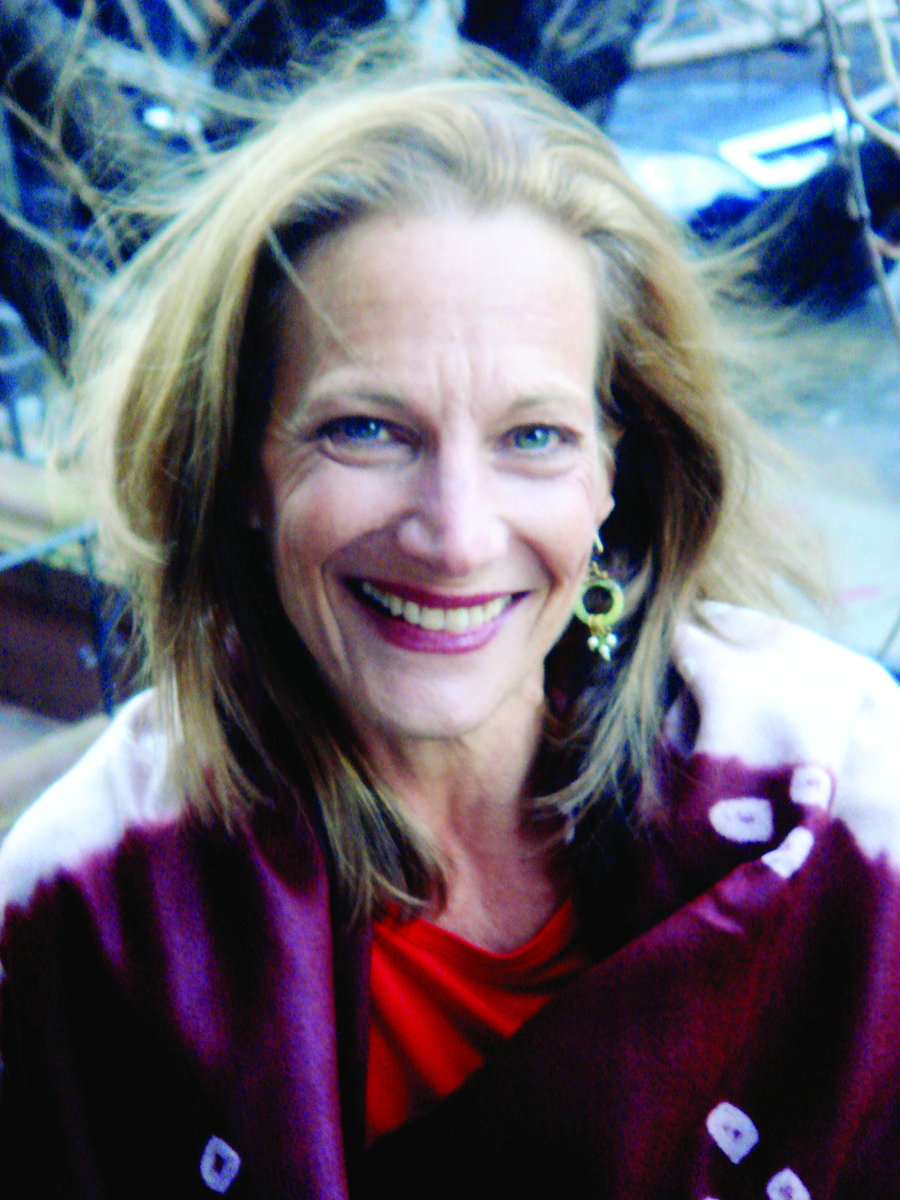 Midwestern Gothic staffer Giuliana Eggleston talked with author Kathryn Harrison about her novel True Crimes: A Family Album, finding meaning in suffering, prose that carries a hidden knife, and more.
Midwestern Gothic staffer Giuliana Eggleston talked with author Kathryn Harrison about her novel True Crimes: A Family Album, finding meaning in suffering, prose that carries a hidden knife, and more.
**
Giuliana Eggleston: What’s your connection to the Midwest?
Kathryn Harrison: Short and profound. I lived in Iowa from 1985 to 1987, when I was at the Writer’s Workshop. I met Colin there; we’ve been married more than half my life. As the title essay recounts, Colin and I catapulted ourselves from Iowa City to New York without really thinking. Without a plan.
I flew east to find a place to live; Colin followed with a U-Haul. I had three days to find an apartment whose rent, I discovered, would be three times what we paid for a house in Iowa City. Our editorial jobs, which we were fortunate enough to find relatively quickly, barely covered our expenses and demanded a fifty or sixty-hour week. I wrote between 5 and 7 AM. Life in New York was hard, and exciting. We knew we were going to stay on the East Coast, and we also knew—immediately, I think—that we’d always look back on those years in the Midwest as having a grace we’d left behind.
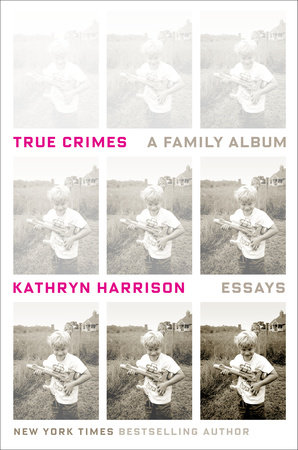
GE: Your new collection of essays True Crimes: A Family Album, was written over the course of more than ten years. Did you know from the start that you were writing a collection, or did the stories come to you separately with a clear collection forming later? How did you know when the collection was complete?
KH: Assembling Seeking Rapture, a collection of essays written between 1992 and 2002, taught me what I hope makes True Crimes a better book. For that collection, I reviewed all the short pieces I’d written in a decade. Almost without exception, the better essays were driven by my own psychic need to explore something, not conceived in response to an editor’s idea. From that point forward, I wrote only what I couldn’t help writing. Essays that were completely personal, completely me.
By 2014, I had thirteen essays that were thematically united by time: they represent a chapter in a life. After content, the next challenge was to sequence the parts so they came together in a narrative arc. A collection doesn’t have a plot the way a novel does, but I could assemble the parts with the intention of creating conflict, rising tension, crisis, denouement: an emotional arc rather than one formed by plot.
GE: The stories within your new collection are deeply personal, ranging from your own complicated childhood to your experiences as an adult with children of your own. What do you feel are the challenges and rewards of being so emotionally vulnerable with your audience?
KH: It isn’t a challenge to make myself emotionally vulnerable, because I write as the person I am: emotionally vulnerable in any context. In the grocery store or on the subway that’s a liability. At my desk it’s an asset. I intend my work to be a vivisection; I’m the object of my own scalpel and scrutiny and can form a closed circuit that excludes the world, and provides unexpected solace. What might otherwise be exhibitionism reflects an attempt to correct for the life of a solitary.
I can’t speak to the audience’s rewards, but it’s my good fortune to be able use my life as material, and to give its measure of pain meaning. Which is what we all want, isn’t it: to find meaning in suffering?
GE: How has time affected the way you view your “family album”? Are there any stories you wrote that came out differently than you expected?
KH: In as much as I’m always excavating my past, I am always looking forward in terms of my work. Always dissatisfied, focused on growing, evolving. The only reason I reread anything I write is to see how it was I solved a narrative problem similar to the one I’m facing in the moment.
Nothing comes out as I expect, because I’ve never written anything whose ending I could anticipate, nor begun anything with a destination in mind. If I did, I’d be too bored to write it. The novels I’ve outlined are the ones I’ve tossed almost before they were begun. I can’t write a decent essay that isn’t driven by unconscious pressure. True Crime began with my need to understand my addiction to pulpy true crime: what did it mean? Keeping Vigil asks the reader bear witness to the death of my father-in-law. The page offered me the single means I had to pay homage to someone I loved, a person whose death I wanted the reader to mourn with me. At least by the end of the essay.
GE: While often dealing with difficult and dark aspects of life, you are able to infuse your writing with bits of humor and wisdom that reveal different layers of the stories you tell. Why do you think it’s important to include humor and wisdom when dealing with serious topics?
KH: I don’t know how anyone without a sense of humor puts one foot in front of the other. I don’t know any reader who would put up with unleavened difficult-and-dark. And I’m the first among them – the first person I want to amuse is me. Because sometimes I have to laugh at what’s happening to me, on the page if not in the moment.
Wisdom? Whatever I’ve dispensed has been accidental. Very dangerous to go around imparting wisdom.
GE: The honesty you display when writing about your family is bold, coming through with acute clarity to the reader. How do you go about achieving such candidness in your writing, and why was casting light onto dark aspects of life essential to your collection?
KH: It isn’t achieved; it’s helpless. There are a lot of people who would prefer I were neither bold nor acute, readers who don’t want a book that’s honest about what they’d rather not consider.
For them, there is another, more demure, writer. Me: I want to get to the point. I want prose that carries a hidden knife. I want to cut you before you know I have.
GE: Aside from memoirs, you have also written novels, personal essays, two biographies, and a work of true crime. How do your processes vary for each type of work, and do you have a preferred type of literature to write?
KH: Fiction grants the freedom of invention: whatever I can imagine I can use. And with the exception of The Seal Wife, that freedom encourages me to be more playful with language, and with events. One of the characters in Enchantments is a depressive who lives her life “under a cloud.” A literal one that follows her and reflects her moods. Non-fiction—whether biography, memoir, or true crime—comes with a plot that can’t be manipulated to suit my intentions. It demands my being willing to discover what may change the shape of the book or destroy my assumptions, often about myself.
I tend alternate because the forms demand such different approaches that going back and forth between them prevents fatigue. My short work is occasional and interrupts my writing a book—something unfolds, either without or within me and demands immediate attention. I never plan to take breaks from a work-in-progress, but it’s good to be forced to do so.
GE: What’s next for you?
KH: I’m working on a memoir called Sunset. I grew up on Sunset Boulevard under the care of my maternal grandparents, who were born in the 1890s and whose stories of their far-flung improbably lives—and their readiness to tell them— provided a perfect petri dish for a baby writer. Especially when added to an atmosphere so bizarre as to have been judged “surreal” by reviewers. The first time I encountered that observation I felt a little defensive. But there was a reason I never invited other children over to play.
I heard it all my life: your grandparents are such interesting people; how lucky you are to have them. They were, and I was, and now it’s time to pull my grandfather into the light, and convince my scene-stealing grandmother to move over a bit.
**
Kathryn Harrison has written the novels Thicker Than Water, Exposure, Poison, The Binding Chair, The Seal Wife, Envy and Enchantments. Her autobiographical work includes The Kiss, Seeking Rapture, The Road to Santiago, and The Mother Knot. She is also the author of a book of true crime, While They Slept: An Inquiry Into the Murder of a Family, and the author of the biographies St. Therese of Lisieux and, most recently, Joan of Arc: A Life Transfigured. She lives in Brooklyn with her husband, the novelist Colin Harrison, and their three children.
June 23rd, 2016 |
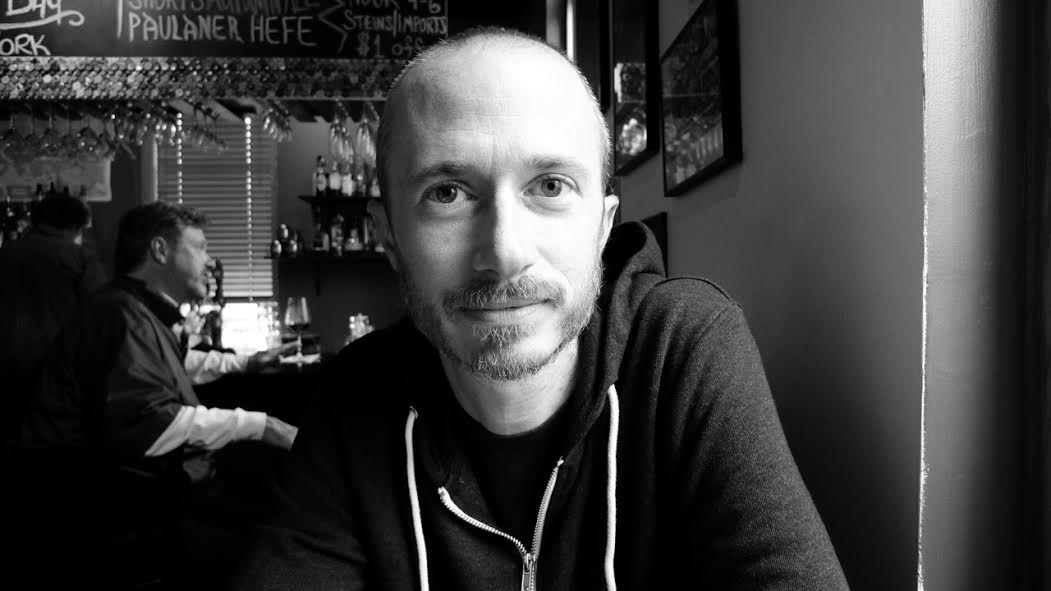 Midwestern Gothic staffer Allison Reck talked with poet Adam Clay about his collection Stranger, the lived moment, writing as a conversation, and more.
Midwestern Gothic staffer Allison Reck talked with poet Adam Clay about his collection Stranger, the lived moment, writing as a conversation, and more.
**
Allison Reck: What’s your connection to the Midwest?
Adam Clay: I’m a transplant to the area — I grew up in Mississippi but ended up in Michigan for graduate work. It wasn’t a part of the country I ever imagined myself living in, to be honest, but I felt at home there in Southwest Michigan. Afterwards, I moved to Kentucky for a few years, but now I’m in Springfield, Illinois. My wife and I bought a cabin in upper Michigan a few years back, too, so we still lay some claim to being Michiganders, too.
AR: Your newest collection of poems, Stranger, focuses on a very relatable element of the human experience: transition. In what way do you feel Stranger is a reflection of your own understanding of change?
AC: That’s a great question. I don’t know if one really can understand the role of change or transitions in a succinct way, especially in the moment — each change has a life of its own. I do think, though, that the poems in this book ended up with an approach to thinking about change: and that is to accept it. The poems focus on daily moments as a way of emphasizing the path a day can take — eventually a major transition becomes routine until another transitions shuffles things around. The metaphor of a river running toward the sea might be a good way to think about it. Disruptions occur, oxbows are left behind, but eventually water finds a way to the place it’s meant to reach.
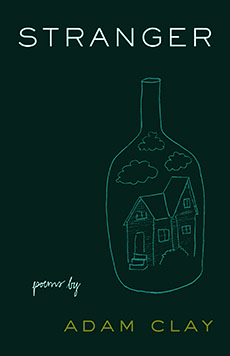
AR: Your poetry treats the past, present, and future and how they relate to the “lived moment”. How and why does time play an important role in your writing?
AC: As I thought about change and transition through the structuring and ordering of the book, I saw a lot of the poems dealing with time (or attempting to consider time) in a variety of ways. Because time can ultimately affect how we view transitions, it seemed like an important feature of the book. One of the challenges I faced in writing the book was trying to consider abstract notions through concrete language. Poetry seems like the genre to do this: it allows figurative language to understand what can’t be seen or what might even be arbitrary, ultimately.
AR: Stranger is your third collection of poems thus far – what draws you to poetry as a means of expression rather than other art forms?
AC: It’s always felt like the most comfortable form for me, though I’m not sure if I can put my finger on why that’s the case. I’ve always been interested in the way a poet balances music and meaning (or content and form) in exploring a particular theme or idea — sometimes the music directs the content and sometimes it’s the other way around.
AR: Some of the advanced praise for Stranger has noted that you “[refuse] to placate or console [your] reader.” What does this mean, in your interpretation of the quote?
AC: I can remember Cate Marvin writing me after reading my book and telling me how dark she found it to be (at least in places). I think there can be a temptation that poets face to provide context or commentary for a particular moment or observation — this might be especially true for a moment that’s particular dark or troubling. I think the quote might suggest that there are moments in the book where these troubling points are left standing on their own without follow-up or context. Life isn’t always neat in terms of how we engage with our experiences — perhaps a refusal to placate simply falls in line with how we engage with life on a daily basis, including both the big transitions and the small, quotidian moments.
AR: You have been hailed as “one of the best young American poets writing today.” Where do you find inspiration for your writing?
AC: I tend to find inspiration or motivation from other writers. I often write with a book open next to me — it seems easier to think about writing as a conversation rather than a monologue. I try to jot down ideas or images, too, as I encounter them. I might not know how they’ll fit into the picture of whatever the current project might be, but I find that’s part of the joy of writing: knowing something needs to be included in some way but not knowing how exactly it’ll fit in.
AR: How do you feel that your writing has evolved with each new publication? For example, has the environment you write in changed, the draft process, or even your writing style itself?
AC: All three of my books are different in some way — it’s the result of some conscious choices, but other factors play a role as well. With Stranger there was a definite shift to the “I” of the poems as being autobiographical. In terms of process, I shifted towards drafting a large number of poems and cutting back to the collection — this was different from the previous two books where I wrote towards the book as a completed object. Having a large number of poems to work from was particularly satisfying — I felt comfortable cutting when it seemed fit.
AR: How does the title, Stranger, relate to important elements such as time, change, and “the way forward?” Do you feel there is a particular link between these subjects and feelings of alienation?
AC: Because the book is so much about the birth of my child, the title seemed apt. Transitions or change impact the world — or perhaps simply the way we view it —in massive ways. Eventually, of course, the strange becomes routine, of course, and the book eventually settles on this point as a way of accepting change before moving on.
AR: What’s next for you?
AC: I just finished up a manuscript the other day so I’m not really sure what’s next. I tend to take a break from writing in the summer and read a bit. I’ll get back to writing in the fall, I’m sure. I’ve been toying with the idea of trying prose, perhaps creative nonfiction. Poetry will always be my primary genre, but I’m intrigued to see what a new form might lead me to as I consider some of the same themes that Stranger seeks to grapple with and understand.
**
Adam Clay is the author of Stranger (Milkweed Editions, 2016), A Hotel Lobby at the Edge of the World (Milkweed Editions, 2012), and The Wash (Parlor Press, 2006). His poems have appeared in Ploughshares, Crab Orchard Review, Boston Review, Iowa Review, The Pinch, and elsewhere. A co-editor of TYPO Magazine, he serves as a Book Review Editor for Kenyon Review and teaches at the University of Illinois Springfield.
June 22nd, 2016 |
 Midwestern Gothic staffer Giuliana Eggleston talked with author Toni Nealie about her book of essays The Miles Between Me, approaching sensitive topics, the influence of identities, and more.
Midwestern Gothic staffer Giuliana Eggleston talked with author Toni Nealie about her book of essays The Miles Between Me, approaching sensitive topics, the influence of identities, and more.
 Midwestern Gothic staffer Sydney Cohen talked with author Dan Barry about his book The Boys in the Bunkhouse, giving voice to the voiceless, corroborating stories from the mentally disabled, and more.
Midwestern Gothic staffer Sydney Cohen talked with author Dan Barry about his book The Boys in the Bunkhouse, giving voice to the voiceless, corroborating stories from the mentally disabled, and more.
 Midwestern Gothic staffer Ally Wright talked with author Lori Ostlund about her novel After the Parade, small town discretion, saving oneself, and more.
Midwestern Gothic staffer Ally Wright talked with author Lori Ostlund about her novel After the Parade, small town discretion, saving oneself, and more.
 Midwestern Gothic staffer Sydney Cohen talked with author Maryse Meijer about her new collection Heartbreaker, reversals of power, writing as an act of fantasy, and more.
Midwestern Gothic staffer Sydney Cohen talked with author Maryse Meijer about her new collection Heartbreaker, reversals of power, writing as an act of fantasy, and more.
 Midwestern Gothic staffer Giuliana Eggleston talked with author Mo Daviau about her novel Every Anxious Wave, time travel, the influence of indie rock music in her novel, and more.
Midwestern Gothic staffer Giuliana Eggleston talked with author Mo Daviau about her novel Every Anxious Wave, time travel, the influence of indie rock music in her novel, and more.

 Midwestern Gothic staffer Giuliana Eggleston talked with author Edmund White about his novel Our Young Man, the era of supermodels, the difficulty of writing about same-sex love, and more.
Midwestern Gothic staffer Giuliana Eggleston talked with author Edmund White about his novel Our Young Man, the era of supermodels, the difficulty of writing about same-sex love, and more.
 Midwestern Gothic staffer Ally Wright talked with author Elizabeth McKenzie about her novel The Portable Veblen, what it means to have a “freelance” character, the role of translation in her novel, and more.
Midwestern Gothic staffer Ally Wright talked with author Elizabeth McKenzie about her novel The Portable Veblen, what it means to have a “freelance” character, the role of translation in her novel, and more.
 Midwestern Gothic staffer Giuliana Eggleston talked with author Kathryn Harrison about her novel True Crimes: A Family Album, finding meaning in suffering, prose that carries a hidden knife, and more.
Midwestern Gothic staffer Giuliana Eggleston talked with author Kathryn Harrison about her novel True Crimes: A Family Album, finding meaning in suffering, prose that carries a hidden knife, and more.
 Midwestern Gothic staffer Allison Reck talked with poet Adam Clay about his collection Stranger, the lived moment, writing as a conversation, and more.
Midwestern Gothic staffer Allison Reck talked with poet Adam Clay about his collection Stranger, the lived moment, writing as a conversation, and more.




